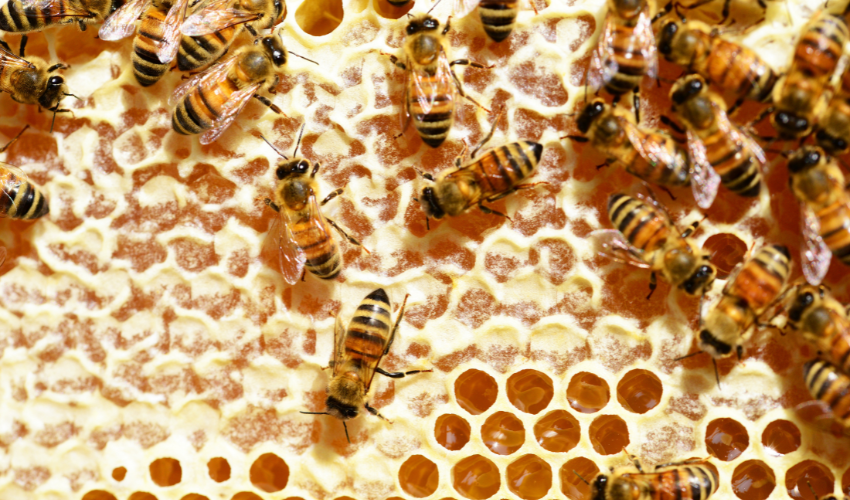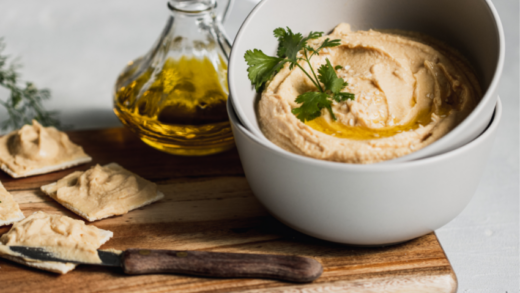For thousands of years, honey has been a staple in many cultures around the world. Ancient Egyptians used it to embalm their dead, while the Greeks believed it to be the food of the gods. Today, honey continues to be a popular sweetener, often used as a natural alternative to sugar. But did you know that honey also offers a host of health benefits? In this article, we’ll explore health benefits of honey that might surprise you.
Boosts Energy and Athletic Performance
If you’re feeling sluggish or need a boost of energy before a workout, honey might be just what you need. Its natural sugars provide a quick burst of energy without the crash that comes with other sweeteners. In fact, research shows that honey can improve endurance and reduce muscle fatigue during exercise.
Soothes Coughs and Sore Throats
Honey has long been used as a natural cough suppressant and sore throat remedy. Its antibacterial properties help soothe inflammation and reduce irritation in the throat. Simply mix a spoonful of honey into warm water or tea to relieve symptoms.
Promotes Better Sleep
If you’re struggling to get a good night’s rest, honey might be able to help. Its natural sugars stimulate the release of tryptophan, an amino acid that helps promote relaxation and sleep. Try mixing honey into warm milk or tea before bed for a restful night’s sleep.
Supports Digestive Health
Honey is a natural prebiotic, meaning it helps promote the growth of healthy gut bacteria. This can lead to improved digestion and a stronger immune system. Additionally, its antibacterial properties can help soothe digestive issues like diarrhea and stomach ulcers.
Boosts Immunity
Honey’s antibacterial and anti-inflammatory properties make it a great immune system booster. It can help fight off harmful bacteria and viruses, and its antioxidants help protect against cell damage.
Improves Skin Health
Thanks to its antibacterial and moisturizing properties, honey can be a great addition to your skincare routine. It can help soothe and heal acne, moisturize dry skin, and even reduce the appearance of fine lines and wrinkles.
Treats Wounds and Burns
Honey’s antibacterial and anti-inflammatory properties also make it an effective natural wound healer. It can help reduce swelling and inflammation, prevent infection, and speed up the healing process. Simply apply a thin layer of honey to the affected area and cover with a bandage.
Lowers Blood Pressure
Studies have shown that honey can help reduce blood pressure in people with hypertension. Its antioxidants and anti-inflammatory properties help improve blood flow and reduce inflammation in the arteries.
Helps with Weight Management
Despite its sweetness, honey can actually be a helpful tool for weight management. Its natural sugars provide a quick burst of energy without the crash that comes with other sweeteners, and its prebiotic properties can help promote a healthy gut microbiome.
Reduces Allergy Symptoms
Honey’s anti-inflammatory properties can also help reduce allergy symptoms like sneezing, itching, and congestion. By eating local honey, you may be able to build up a tolerance to local pollen and reduce your allergy symptoms over time.
Supports Heart Health
Thanks to its ability to lower blood pressure and reduce inflammation, honey can be a great addition to a heart-healthy diet. Its antioxidants can also help protect against heart disease by reducing oxidative stress and preventing the buildup of plaque in the arteries.
Improves Dental Health
Believe it or not, honey can actually be good for your teeth! Its antibacterial properties can help prevent the growth of harmful bacteria in the mouth, reducing the risk of tooth decay and gum disease.
Helps with Diabetes Management
While honey is still a form of sugar, its natural sugars are digested differently than other forms of sugar, which can help regulate blood sugar levels. Studies have shown that honey can be a helpful addition to a diabetic diet when used in moderation.
Relieves Allergies and Sinusitis
Honey’s anti-inflammatory properties can also help reduce allergy symptoms like sneezing, itching, and congestion. By eating local honey, you may be able to build up a tolerance to local pollen and reduce your allergy symptoms over time.
FAQs
Is honey healthier than sugar?
Yes, honey is generally considered healthier than sugar. It contains antioxidants, prebiotics, and antibacterial properties that sugar does not.
Can honey cure a cold?
While honey cannot cure a cold, it can help soothe coughs and sore throats that often accompany a cold.
Is honey safe for infants?
Honey is not safe for infants under one year old, as it can contain spores that can lead to botulism.
How much honey should I eat per day?
It is recommended that adults consume no more than one tablespoon of honey per day.
Can honey help with allergies?
Eating local honey may help reduce allergy symptoms over time by building up a tolerance to local pollen.
Conclusion
Honey is more than just a sweetener. It offers a wide range of health benefits, from boosting energy to treating wounds. By incorporating honey into your daily routine, you can reap the many benefits it has to offer. Whether you’re adding it to your tea or using it as a natural wound healer, honey is a versatile and beneficial addition to any diet. So why not try incorporating some of these honey health benefits into your life today?
























